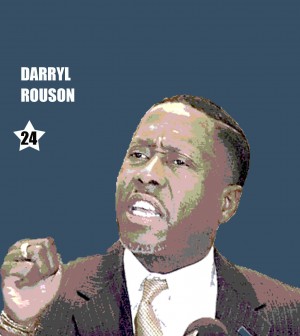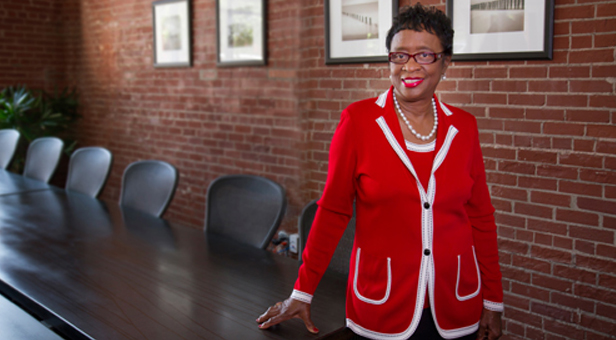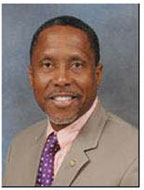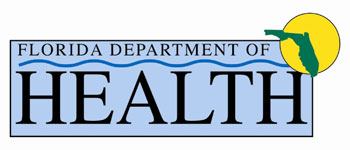
By MARGIE MENZEL
THE NEWS SERVICE OF FLORIDA
THE CAPITAL, TALLAHASSEE, February 26, 2013……….Last week, Rep.
D-St. Petersburg, was elected House Democratic leader for 2014 to 2016. It’s a marker on a long road for Rouson, 58, who has been both homeless and a drug addict. He built his recovery on his work as a lawyer and as president of the St. Petersburg NAACP.
A former Republican who supported Jeb Bush and Charlie Crist for governor, Rouson maintains ties on both sides of the aisle. He was elected to the House in 2008 to finish Frank Peterman’s term. He now serves on the House Appropriations Committee and is the ranking Democrat on three other panels.
Rouson is married to Angela Holmes Rouson and is the father of eight children.
The News Service of Florida has five questions for Darryl Rouson:
Q: What does being elected the next House Democratic leader mean to you?
ROUSON: First of all, I’m very humbled by it, and very grateful to my Democratic colleagues who have expressed some confidence in my ability to recruit, raise funds, and really position us to be a powerful and relevant minority – or even the majority, should the gods smile. I understand the sober nature and responsibility of the work, and I’m like a quarter-horse at the gate, ready to run.
The past election cycle was very exciting. I believe, however, we can build upon those successes and do even more. I think that if we can dedicate the time and the talent and the treasure to such an effort, then 2014 could even be more exciting. Is there a trend? Yes. Must we work to keep the trend? Yes.
Q: What needs to happen for Democrats to take back the majority?
ROUSON: First of all, we have to expand our reach. We have to embrace all Democrats – I’m talking about the liberal, the centrist as well as the conservative Democrat. All of those are in the big tent party, as well as African Americans, Hispanics, the GLBT community of people, and we have to embrace the beauty of our diversity, and expand upon it, and do even more to be inclusive.
And not just inclusive of membership, but inclusive of industry and sponsors and organizations and corporations, as well as consumers and citizens….We should be givers in the sense of protections for consumers, and also stimulators of private industry to create jobs and do those kinds of things necessary, both for the development of the party, but more importantly, the development of our economy and our community.
Q: You’re sponsoring a bill to ban drug paraphernalia – a personal issue with you.
ROUSON: It’s a passion that began many years ago in St. Petersburg when a parent of a student attending Gibbs High School expressed concern about a bong shop, a pipe shop selling paraphernalia, literally 1,000 yards away from the high school where 2,000 students go every day of the week. And here we’re telling them, “Don’t smoke dope, don’t smoke marijuana” – but any 18-year-old senior or junior could walk in and buy any kind of pipe they could imagine. It’s an hypocrisy that in our society we allow to operate under the guise of being called a tobacco accessory.
We passed a bill in 2010 that sought to regulate these shops. The owners sued, which delayed the implementation, but just a few weeks ago, Judge Terry Lewis, here in Leon County, upheld the constitutionality of that law.
But now we have a bill seeking to ban them statewide. If we can make people drive to Georgia and Alabama and South Carolina to buy fireworks that are illegal in the state of Florida, then certainly we can make them drive to get crack pipes and marijuana pipes.
So I’m excited about the bill. My Senate sponsor is Sen. Kelli Stargel, who also shares my passion for getting rid of this hypocrisy, and we’re hopeful that it will move forward.
Certainly I have never been shy about saying I am a recovering addict. On March 17th of this year, St. Patrick’s Day, I will celebrate 15 years of clean time with total integrity. You know how they say, “Nothing like a reformed smoker in the room”? Well, nothing like a recovering addict in society. And it has given me passion.
Q: What’s the origin of your bill to guarantee grandparents’ rights?
ROUSON: It was a bill that came to me because of the Michelle Parker disappearance in Orlando, where the young lady was taking her children and the last to see her alive was the children’s father. While he may not be classified as a suspect, I believe that he’s been classified as a person of interest.
There were problems with Michelle’s parents being able to visit with the children and maintain a meaningful and substantive grandparent-grandchild relationship. Many states across the country have recognized that grandparents deserve some rights when it comes to visitation and access. Florida has tried to do it on several occasions and failed. But hopefully our legislation takes the defects and the things that prevented us from getting it passed before and corrects them, so that we can give some rights and give some opportunity of participation, visitation, in the development of these grandchildren and in the enjoyment of their lives.
Q: You’re backing a “smart justice” bill aimed at preparing non-violent offenders for re-entry when they near release. But Senate President Don Gaetz says being tough on crime is working – how will you get the bill passed if he’s opposed?
ROUSON: Well, recidivism has gone down some. The crime rate has gone down some. But to me, the goal of society would be no crime and no recidivism. And there are ways to get there. It’s not just about a low crime rate, it’s also about cost – the costs of incarceration versus costs of treatment, costs of education. When people are educated, when their underlying issues of addiction and mental wellness are addressed through treatment, the chances are that recidivism can drop 100 percent. Chances are that crime can go away.
And so I think we need to be smarter about our justice. Let’s be tougher on criminals, but let’s be smarter on the administration of justice.
We don’t need Sen. Gaetz’s support to get it through the House. And I’m in the House. I’m not in the Senate. And my hope is that our fellow House members – who I do believe see some value in being smarter about justice administration – and I think we will come out with some type of committee bill that deals with education, treatment, some reduced incarceration – or at least while you’ve captured a person’s body, we will do things that capture their minds and hearts at the same time, so that the change of their coming back are reduced even more than what’s been happening.




Be the first to comment